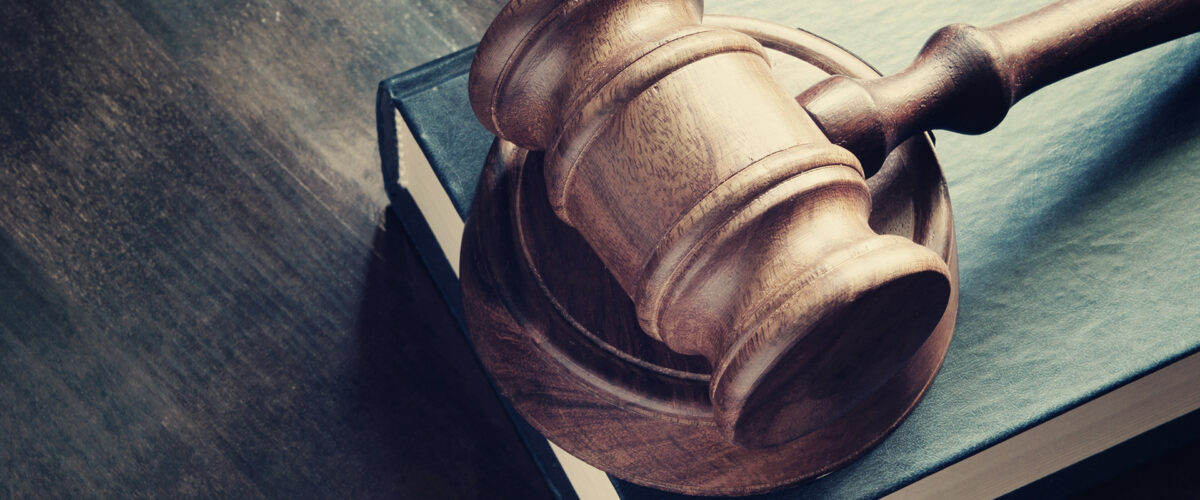article | 17 May 2017
The Swedish Supreme Court takes a stance in the calculation of damages for a wrongful preliminary injunction

While the use of a preliminary injunction (PI) can be an invaluable tool for an intellectual property rights (IPR) holder to maintain its position on a market by preventing other actors from infringing the IPR during the infringement proceedings, the PI can also cause significant harm to the alleged infringer. PIs are granted early in the proceedings, based on a preliminary assessment of the facts and arguments. The full proceedings may often be concluded several years later and, on closer scrutiny, it will sometimes be the case that the PI should not have been granted, for example because the underlying IPR was invalid or because there was never any infringement. To strike a balance between the interests of the alleged infringer and the IPR holder, the IPRED Directive requires EU member states to ensure that the alleged infringer is compensated for any injury caused by a wrongful PI.
Claims for such compensation rarely reach the courts, as they are normally settled between the parties. Recently, however, the Swedish Supreme Court had the opportunity to shed light on several issues related to a claim for compensation for damages caused by a wrongful PI.
Background to the case
The parties to the dispute before the Supreme Court were referred to as Hela Pharma and Cederroth. In 2006, Hela Pharma was the sole supplier of a nutrition supplement in liquid form under the trademark “Mivitotal”. Early 2006, Cederroth launched a similar product under the trade mark “Multi total”. Hela Pharma sued Cederroth for trademark infringement. On 1 March 2006, the district court granted a PI, whereby Cederroth was prohibited from using the trade mark “Multi total” for nutritional supplements. The PI was in force for almost 4 years, until 26 February 2010, when the court of appeal held that “Multi total” did not in fact infringe the trademark “Mivitotal”. Hence, the court of appeal lifted the PI.
Subsequently, Cederroth initiated an action for damages against Hela Pharma and claimed compensation in the amount of approx. SEK 26 million for lost profits incurred over the period 1 March 2006 to 31 December 2010 as a result of the PI.
Grounds for liability
The Supreme Court confirmed that the IPR holder is strictly liable for any damage caused by a wrongful PI and noted that the general principles set out in the Tort Liability Act are applicable when deciding upon the damages due to a wrongful PI. This means, among other things, that there is an obligation for the damaged party to limit its damage and that only actual damage (e.g. loss of profit, not loss of income) can be compensated.
When calculating the actual damages, the Supreme Court held that the so-called “difference principle” is applicable. This means that the court has to compare the hypothetical case in which no PI was imposed with the actual scenario in which a PI was imposed. Naturally, it is difficult for a damaged party to prove the hypothetical scenario. To mitigate this problem, the court may assess reasonable damages. However, the Supreme Court stressed that this does not relieve the damaged party of its obligation to present a calculation of the actual damages based on the facts and evidence reasonably available to the damaged party.
Calculating the reasonable damage
The Supreme Court concluded that an assessment of reasonable damages requires an overall assessment of several aspects. In its assessment, the court considered the following aspects:
- whether Cederroth had discharged its obligation to limit its damages,
- the relevant time period for the calculation of lost profits due to the PI,
- Cederroth’s contribution margin in the hypothetical scenario and how this margin would have developed over the relevant time period,
- Cederroth’s sales volumes in the hypothetical scenario.
Hela Pharma argued that the Cederroth had an obligation to limit its damage by relaunching its product under a different trademark, alternatively under a generic trade name. The Supreme Court disagreed. The object of the PI is the trade mark as such, not the product that is sold under the trademark. Therefore, in the normal scenario, the damaged party has no obligation to limit its damages by relaunching the product and the potential revenues from such hypothetical sales are not to be considered in the assessment of the damages. This does not mean, however, that the damaged party can remain passive when faced with a PI. The Supreme Court stated, somewhat surprisingly, that it might be reasonable to require the damaged party to limit its damage by using the legal remedies available in order to have the PI revoked.
As regards the relevant time period for the calculation of lost profits, the Supreme Court held that Hela Pharma, as a starting point, was responsible for damages arising from the day of the PI decision until the day when the Court of Appeal lifted the PI (i.e. almost 48 months).
The Supreme Court disagreed with Cederroth that the relevant time period should be extended until the Court of Appeal’s decision to lift the PI could no longer be appealed. Moreover, Cederroth argued that the relevant time period should be extended to compensate Cederroth for loss of profits during the time period from the cancellation of the PI until Cederroth had been able to relaunch its product. The Supreme Court agreed in principle, but reduced the additional time from 10 to 6 months, making the total time period approx. 54 months.
Cederroth also claimed compensation for lost sales in Denmark, Finland and Norway. Even though the PI was not enforceable outside Sweden, Cederroth argued that its sales strategy meant that the PI in Sweden nega- tively impacted its sales in the other Nordic countries. The Supreme Court disagreed and noted that lost sales outside Sweden are an unforeseeable implication of a PI, which may only be compensated in exceptional circumstances (e.g. if seeking a PI in Sweden is a conscious effort by the IPR holder to stop sales in other countries as well).
To support its claims regarding market growth during the relevant time period, Cederroth had requested the district court to order Hela Pharma to produce its sales figures. The court rejected the application and stated that it was up to Hela Pharma to consider the possible consequences of not voluntarily providing its sales figures. Despite the warning from the court, Hela Pharma refused to produce the data. Consequently, the Supreme Court made a reasonable assessment based on the estimates provided by Cederroth. Hela Pharma’s refusal to cooperate thus had a direct effect on the Supreme Court’s assessment of Cederroth’s calculations.
It should be noted that the Supreme Court did not fully accept the calculations made by Cederroth in other respects. For example, Cederroth had not deducted costs that it would have incurred in the hypothetical scenario, such as marketing costs and costs related to selling the products.
The Supreme Court also rejected a large part of the compensation claim. Cederroth had not provided sufficient evidence regarding the effects of the de-regulation of the Swedish pharmacy market, which occurred during the relevant time period. As a result, the Supreme Court held that it was not possible to make a reasonable assessment of lost profits in this market segment and rejected this entire portion of the claim.
Concluding remarks
The Supreme Court’s judgement sets a framework for the calculation of damages caused by wrongful PIs, and it will serve as a guide for future settlement discussions in all IPR fields. Parties subjected to wrongful PIs may have regard to the fact that the Supreme Court has confirmed that the IPR holder’s liability is strict and that the obligation to limit one’s damage does not extend to an obligation to relaunch a non-infringing product. IPR holders, on the other hand, may have regard to the fact that the Supreme Court appears to set the bar fairly high for allowing reasonable assessments of the level of the damages.
As a final remark, it is worth noting that the Danish Maritime and Commercial High Court recently awarded a generic pharmaceutical company DKK 100 million in compensation for being wrongfully kept out of the Danish market for generic quetiapine. While the reasons given for the judgment are brief and not very helpful, the parties’ arguments shed light on many of the complex issues that arise in situations where the PI is based on a pharmaceutical patent and where the hypothetical scenario involves competition between the originator, a number of different generic manufacturers and parallel importers.


